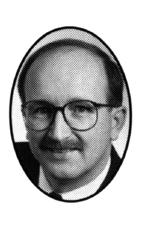Mr. Speaker, it is a pleasure for me to rise to debate Group No. 5 of the amendments. There are three amendments here, Motions Nos. 7, 54 and 57.
Bill C-32 introduces a number of exceptions to facilitate access and reduce costs for the benefit of public institutions and persons suffering from perceptual disabilities.
To ensure access for certain types of users of copyright materials, the Copyright Act recognizes certain exceptions for reasons of public interest. The exceptions contained in Bill C-32 respond to the real concerns from certain types of users and, in some cases, the bill stipulates that certain exceptions do not apply where there exists a collective which can negotiate a blanket licence for the use of those works.
The Bloc Quebecois has tabled amendments which would extend this principle to all exceptions. This, in the government's view, would nullify the very exceptions the government has been promising to reintroduce over the past nine years. The government believes that the collective management of rights is a cost effective and efficient means of enhancing access to works.
The government will therefore continue to encourage the collective management of rights but in certain circumstances, such as those that are described in the bill, the government believes that exceptions are required.
With this group of amendments, I think we have to be very straightforward with regard to the tactics that are being used in this House today to debate certain groups. I am going to give an example. Here we have Group No. 5, Motions Nos. 7, 54 and 57. The Bloc Quebecois is in favour of these motions and want them passed. The Reform critic for Canadian heritage has stood up and said they are not ready to support that. The parliamentary secretary for Canadian heritage is standing in his place now saying that we are not ready to support it either.
There are some very serious debates that have to be done on Bill C-32, debates that members want to hear, the ephemeral transfer format. Unfortunately they only occur in Group No. 7. It is a very long list of amendments. I am anxious to hear what members have to say about those amendments because I think they go a long way in satisfying the Reform Party and our critics with regard to when the bill was first tabled in the House. That was the biggest concern we heard from the Reform Party with regard to ephemeral transfer format.
We heard other concerns from the Bloc with regard to the creator's side, so we tried to strike a balance. At this point I see no need for Reform members to reiterate over and over again that they are against these three and for government members to reiterate over and over that they are against them. I think we should let Bloc Quebecois members explain again why they are in agreement and convince us that they want to go with this. I would certainly be ready to put the question now.

